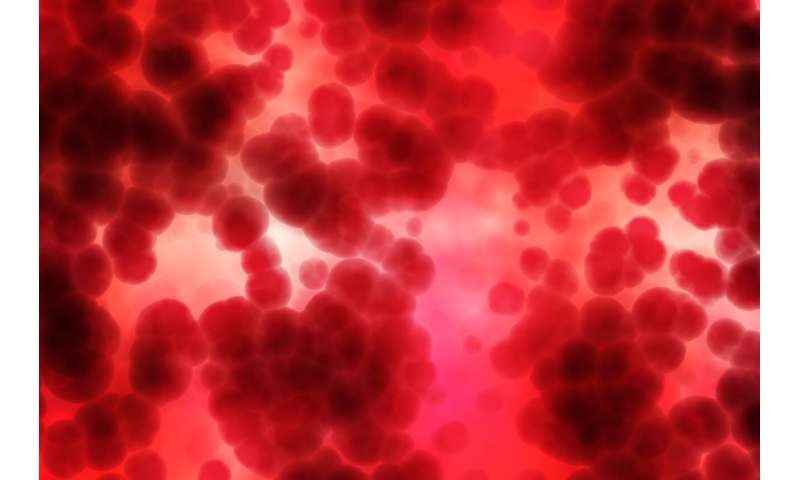Mapping the immune landscape of hematological cancers may help to enhance therapies

Activating the immune system is a promising form of cancer treatment. Researchers at the University of Helsinki and Helsinki University Hospital as well as the University of Eastern Finland mapped out the immune landscape of hematological malignancies in a dataset covering more than 10,000 patients to identify drug targets and patient groups which could potentially benefit from immunotherapies.
Cancer treatments that activate the immune system have proven to be effective, particularly in the case of certain solid malignant tumors. However, in the treatment of hematological malignancies, their potential is not yet fully known.
The reaction of the body’s immune system against cancer can be thought of as a cycle. Cancer cells contain proteins that differ from proteins in other tissue. Their components, known as antigens, have to be presented to the T cells of the immune system by the cancer cells. When they identify antigens, T cells become active and start to destroy cancer cells, which makes the latter release more antigens, enhancing the immune response further. In addition to T cells, natural killer (NK) cells have the ability to destroy cells. In immunotherapies, the immune system is therapeutically activated by boosting different stages of the cycle.
In the study, published in the Cancer Cell journal, a dataset comprising more than 10,000 patients and several hematological cancers was utilized. The researchers investigated how different subtypes of hematological cancers and genetic alterations of cancer cells are related to different stages of the immune response.
“The extensive survey of the immunogenomic features of hematological malignancies carried out in the study helps scientists and doctors target immunotherapies at the patient groups that gain the most benefit as well as understand the factors that have a potential impact on the efficacy of therapies,” says Professor Satu Mustjoki from the University of Helsinki.
Certain cancer subtypes are associated with a high number of killer cells
Based on the findings, cytotoxic T and NK cells are particularly abundant in connection with certain subtypes of cancer, such as activated B cell-like B cell lymphoma and acute myeloid leukemia, which has certain genetic features of myelodysplastic syndrome. Research on solid tumors has shown that large quantities of cytotoxic T and NK cells in the tumor tissue results in a good immunotherapy response.
In the case of multiple myeloma, an exceptionally high number of cancer antigens occurred, which can potentially be used as vaccine or cell therapy targets.
Cancer cells try to hide from T cells by inhibiting the presentation of antigens through a range of mechanisms. The researchers found that in certain subtypes of acute myeloid leukemia, DNA methylation had epigenetically silenced antigen presentation. A drug that inhibits DNA methylation restored the expression of antigen-presenting proteins in laboratory tests. As the drug is already used to treat acute myeloid leukemia, it could potentially increase the efficiency of immunotherapies through combined use.
“Key to the study was the integration of immunology and applied computational analysis. With the help of innovative analysis methods, we were able to correlate molecular features of hematological malignancies with the activity of different immune cells,” says Associate Professor Merja Heinäniemi from the University of Eastern Finland.
Source: Read Full Article


